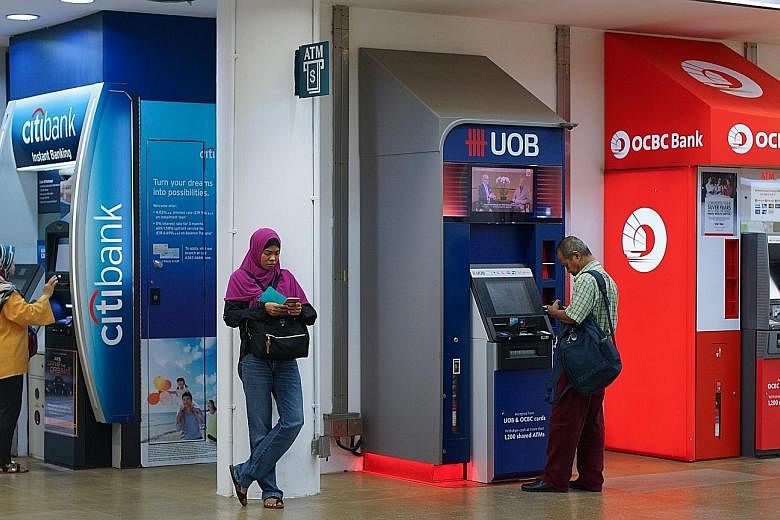The modern services cluster, which includes firms that provide professional, financial and technology services such as cyber security and banking services, was one of the bright spots in the Monetary Authority of Singapore's (MAS) half-yearly macroeconomic review yesterday.
The central bank said the cluster showed robust growth in the past two quarters, and is expected to sustain and contribute more to the economy next year.
The cluster contributes to around 30 per cent of the economy currently, based on the latest available figures. It will reap benefits from digitalisation and innovation, said MAS.
Digital payments, for example, have been expanding rapidly in recent years. The value of cheque transactions in Singapore fell by an average of 1.7 per cent a year from 2012 to 2016, while the value of cashless transactions grew by 7.2 per cent a year in the same period, said MAS.
It added: "Further expansions by established payment players as well as more entrants in the burgeoning e-payments space could provide a fillip to growth in Singapore's financial services and infocomm technology sector."
Fitch Solutions head of Asia country risk Chua Han Teng said the modern services cluster benefits from a greater adoption of digital and smart technologies, and its growth could partly be due to the schemes put forward in the Government's Smart Nation initiative, the national effort to drive technological adoption in Singapore.
United Overseas Bank senior economist Alvin Liew said that in the context of rising trade tensions, the cluster is also less susceptible to trade shocks compared with other types of services, such as in the wholesale trade, transport and storage industries.
However, the modern services cluster will not be completely spared if there is a global economic slowdown, said Maybank Kim Eng economists Chua Hak Bin and Lee Ju Ye.
"For instance, the finance and insurance sector tends to be cyclical, and a confidence shock due to the US-China trade conflict may weigh on securities or forex trading activities," they said.
Investment in this cluster - for instance, in the IT sector - may also slow as firms hold back on spending amid rising uncertainties.
Bank lending, too, started to slow in August this year, coming off from a faster pace in July.
MAS said the financial sector could also be weighed down by cyclical headwinds, stating how global financial jitters have caused a rout in emerging market assets this year.


